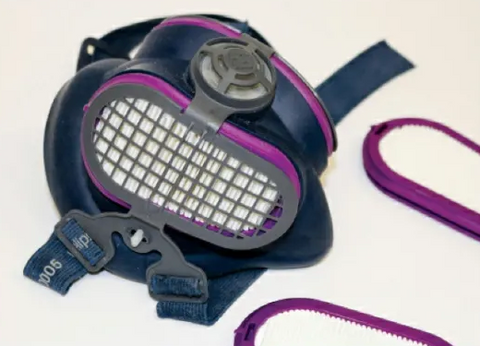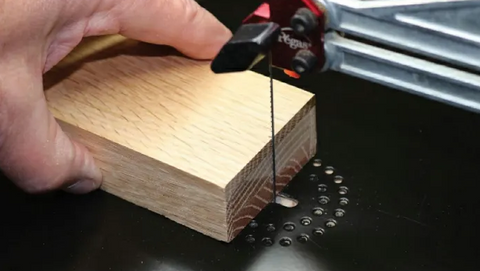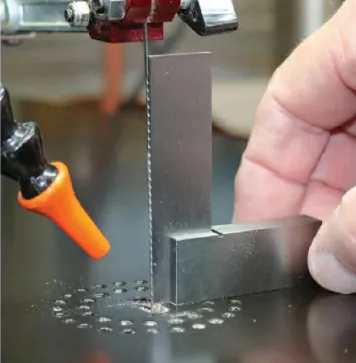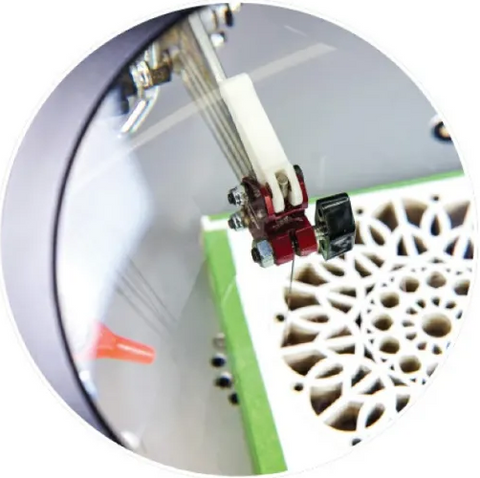Part Eight
|
SQUARING UP YOUR TABLE
Most scroll saws have an adjustable table that allows you to make cuts at different angles. There are times when you want the saw set at an angle, but most cutting is done with the blade perpendicular to the table. If the table is even slightly off-square, the cuts will be angled. This may not be a big deal in coasters and trivets, but it will definitely interfere with puzzle pieces, intarsia, segmentation, and many other types of scrolling projects, so it's good to train yourself in best practices.
The most common method for squaring a table uses a small metal square, or right angle tool. Set the square flat on the saw table against a blade that has been inserted and tensioned. Adjust the table to form a 90-degree angle to the blade. The cutting-through method is also popular. Saw through a piece of scrap wood at least 1/4"(19mm) thick and check the angle of the cut using a square. Adjust the table until you get a perfectly square cut. You can also use the kerf-test method. Take a 1 3/4" (45mm)-thick piece of scrap wood and cut about 1/16"(2mm) into it. Stop the saw, back the blade out, and spin the wood around to the back of the blade. If the blade slips easily into the kerf, the table is square. If it doesn't, adjust the table and perform the test again until the blade slips in easily. |
|
BLADE TENSION Before inserting a blade, completely remove the tension. Clamp both ends of the blade into the blade holders and adjust the tension. Push on the blade with your finger. It should flex no more than 1/8" (3mm) forward, backward, or side to side. A blade that does not have enough tension will wander. It will also flex from side to side, making for irregular or angled cuts. If you press too hard on a loose blade, it will usually snap. A blade that has too much tension is more susceptible to breaking and tends to pull out of the blade holders. In general, it is better to make the blade too tight than too loose.
Always check your blade tension any time you have to remove and reinsert a blade. |
|
TIP Fogging up of glasses is often an issue when you wear glasses and a dust mask at the same time. I have tried many masks over the years and found a favorite that doesn't fog up my glasses: the GVS Elipse P100 Respirator. I love the snug fit and low profile. Here is a list of other masks you can consider, all made by the 3MTM company, that are also very popular for woodworkers: Rugged Comfort Quick Latch Half Facepiece Respirator, Half Facepiece Respirator, Cool FlowTM Sanding and Fiberglass Respirator, and Professional Multi-Purpose Respirator with Drop-Down. There are many companies who make quality dust masks and respirators, so do your research.
A vacuum attachment on your scroll saw can help keep the air somewhat clearer and your work cleaner, but it is not a replacement for a dust mask and good ventilation. I use a lighted magnifying glass for more accurate cuts. When looking through the glass, I find that the accuracy of my cuts improves.Try it!
|







